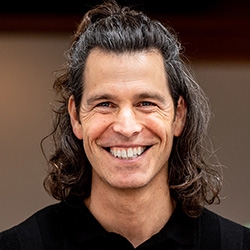

Search Results: judgment
-
Trainer Tip: Have you ever noticed that some of your behaviors ensure that your needs for peace and relief won’t be met? Take judgments for instance. The more we have, the less peaceful and happy we feel.
-
Miki Kashtan shows how translating judgments into needs transforms family conflict and connection.
-
In moments where we would like to see change, personal growth or spiritual transformation, rather than immediately acting to make a change, Robert suggests we practice unconditional self-acceptance through a spacious presence to our inner experience. Robert asks us to give our attention and spacious awareness to our own judgments, inner contractions, and other experiences we often regard as undesirable.
-
Have you ever found yourself passing judgment on a co-worker's seemingly disorganized desk? Mary Mackenzie's experience sheds light on the fact that she and her colleague with the "messy desk" shared a common need for order. Recognizing that our needs align can lead to a softening of judgments, creating space for connection, understanding, and harmony.
-
Miki demonstrates how to work with judgmental thinking, offering a two-step process to shift from right/wrong thinking about our disagreements to a more open-hearted state of being.
-
Yoram Mosenzon discusses judgmental dialogue and its hidden aim to meet needs. This often creates distance instead of fostering connection. Yoram introduces a self-connection exercise to improve the chances of dialogue becoming more enriching and life-serving.
-
Trainer Tip: Changing your thoughts can change the way people experience you. Just for today, see if you can notice when you have judgmental thoughts about yourself or other people. Then look to translate those thoughts into your feelings and needs. Read on for an example of how this works.
-
If you dread family gatherings because of family tensions, you can find ways to excavate through piles of hardened judgments and hopelessness, build on your inner strength, and engage with family conflicts with open-hearted curiosity, greater presence, and connecting with what really matters to everyone.
-
Do you want to increase your capacity to identify and connect with feelings and needs? Would you like to enhance your ability to translate judgments? Join Miki for this deep dive into feelings and needs.
-
People find confrontation inspirational when done with full compassion and intention to support. To do this, transform your own judgments or distress, come with useful content plus spot-on timing, and the best interests of the receiver in mind. Read on for questions you can ask yourself in preparation for this, and more.
-
Ask the Trainer: Get guidance on working with enemy images and exercises that bring relief.
-
Do you yearn to step forward in leadership, but know you're holding back? Clinical psychologist, organizational consultant, and speaker, Roxy Manning, PhD, shows us that more than external factors, its our internal beliefs and fears that provide the main barrier to moving forward. She does this by taking us through three myths of leadership, and weaves in anecdotes to illustrate how tapping our unique (often lesser recognized) qualities, can be the way forward we've been seeking. Learn ways to move forward, even if at first it appears that (1.) others can "do it better", (2.) you need to be more prepared, or even if (3.) the material you're conveying isn't so original (and has been used many times).
-
Trainer tip: Comparisons are a form of judgment. The minute we compare ourselves to other people, we are setting ourselves up for pain and discouragement. We are setting them up too, and erecting a barrier between ourselves and them. Instead, notice how you feel about other people’s assets or foibles, and what needs come up for you. Read on for more.
-
How we relate to life parallels how we relate to others! Learn how to have a more healthy way of relating to situations and people when your needs are not being met. Bob Wentworth offers some wisdom on moving from suffering to aliveness through not fighting what is.
-
Trainer Tip: The very process of giving someone space to talk about their issue without our judgment, to be truly understood by us, and to be deeply heard is very healing, enough so that most people will organically find their own creative ways to resolve their issues. Rely on this process and you will lose all desire to fix people’s problems. Try this out today.
-
Without self-acceptance any attempt at growth and transformation, even while parenting, can easily become a path to self-judgments and another yardstick against which to measure ourselves as falling short. Instead, we can practice 1 minute a day or more, or while doing other tasks, to develop the self-compassion and self-acceptance needed to grow both new habits and our capacity to meet our children with calm and compassion.
-
Ask the Trainer: "In trainings I say our jackals are thoughts and now I've come to wonder if all thoughts are jackals...?"
-
Explore NVC's role in transforming power dynamics and bridging social divides.
-
Learn to speak NVC using your own voice and increase ease and flow in all your personal and professional conversations. This 7-session telecourse recording with renowned trainer Miki Kashtan is designed to help you integrate NVC into all aspects of your life by gaining fluency in your practice of NVC and by embodying the principles regardless of the words you use. This course is based on intensive practice and coaching with real-life examples from participants’ lives.
-
Learn to translate judgments into self-awareness to improve listening in business.

Quick Links
Subscription Preferences
Stay In Touch!
Looking for ways to keep up with NVC Academy news, get special offers, free resources, or words of inspiration? Here are five ways to stay engaged:



















